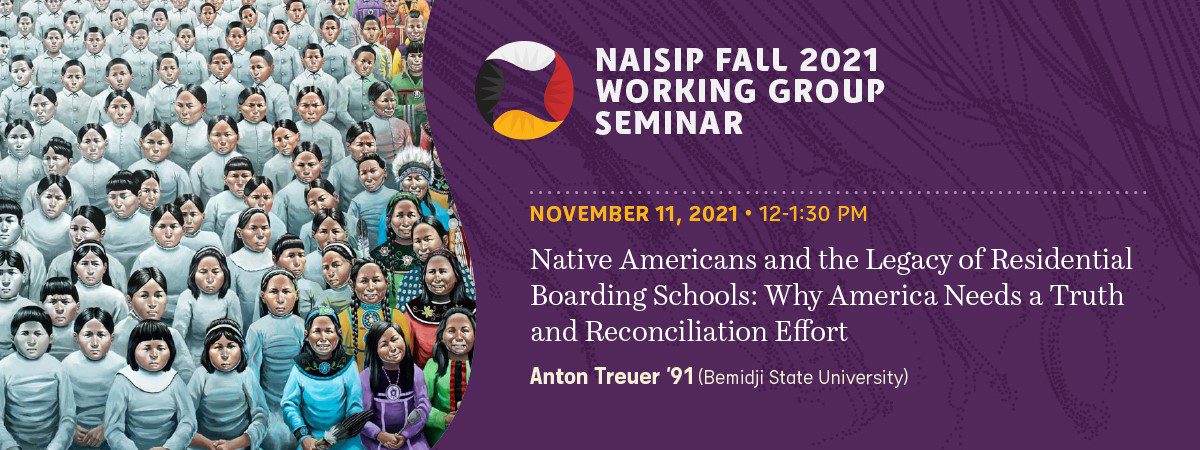
Native Americans and the Legacy of Residential Boarding Schools: Why America Needs a Truth and Reconciliation Effort
Anton Treuer '91, Bemidji State University
November 11, 2021 · 12:00 pm—1:30 pm · 209 Scheide Caldwell
Native American and Indigenous Studies Initiative at Princeton (NAISIP); Humanities Council; Program in American Studies; Fund for Canadian Studies; Center for Culture, Society & Religion

As part of the Humanities Council’s Fall 2021 Working Group Seminars presented by the Native American and Indigenous Studies Initiative at Princeton (NAISIP), join celebrated Indigenous scholar and activist, Anton Treuer ’91, for a look at the history and politics of truth and reconciliation in America with a window into the Indigenous experience.
Recent revelations of mass graves for Native students at residential schools in both Canada and the United States have sparked fresh conversation on America’s troubled treatment of the first Americans and the need for truth, reconciliation, and healing. Dr. Treuer, who spearheads a regional truth and reconciliation effort in Minnesota, has authored twenty books on Native American history, culture, and Indigenous language revitalization, and he is deeply involved in racial equity work across the country.
Open to members of the University community. Pre-registration is required, and in-person attendance will be capped at 20 participants. Registrations will be confirmed via email on a first come, first served basis. Registrants must be confirmed to attend. In the case of participant overflow, a Zoom link will be provided to registered attendees.
NAISIP fosters a cross-disciplinary dialogue among faculty, students, staff, and community members whose research and teaching interests focus on Indigenous peoples, and works to establish and maintain ethical partnerships with Indigenous communities. The NAISIP Working Group Seminar Series is a Collaborative Humanities Project of the Humanities Council. Co-sponsored by the Fund for Canadian Studies; the Program in American Studies; and the Center for Culture, Society & Religion (CCSR).















